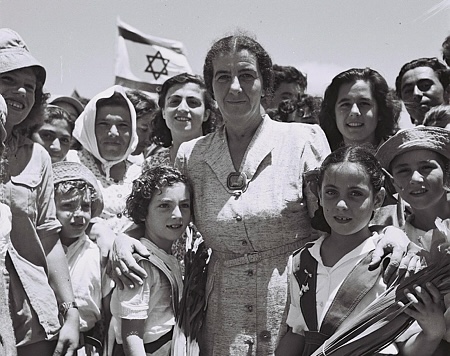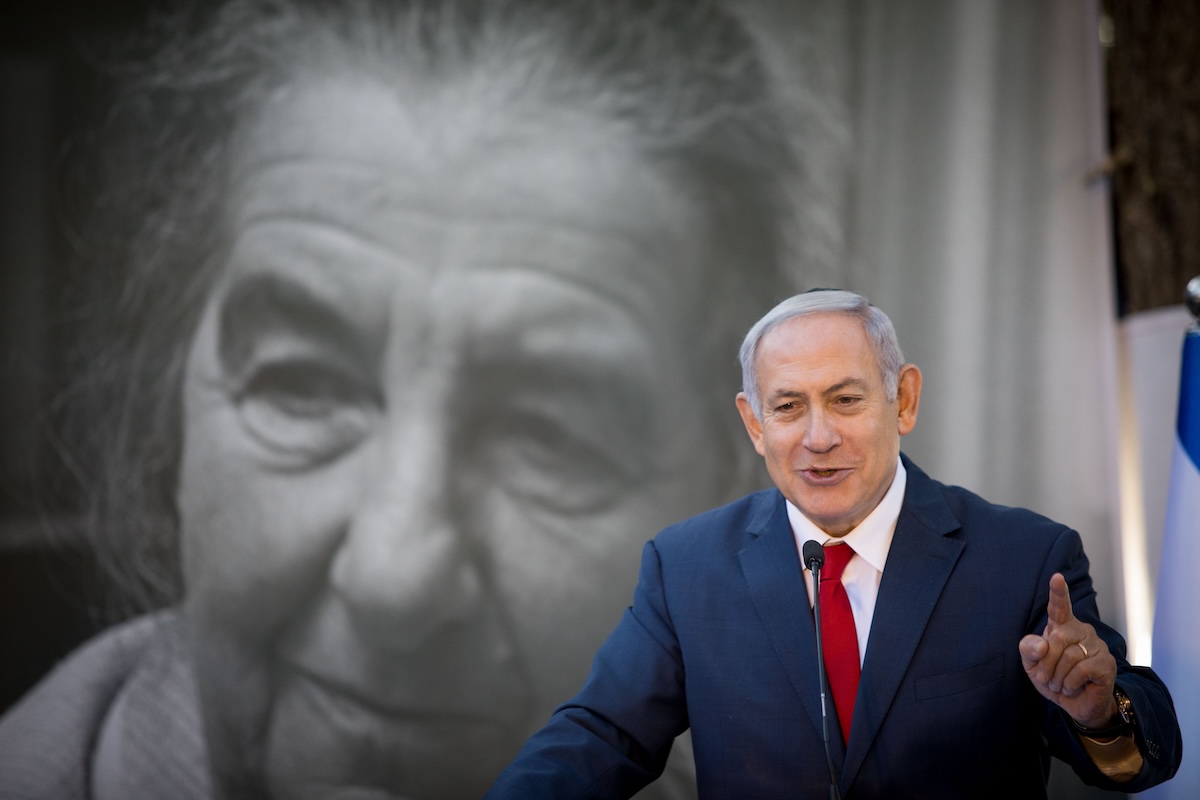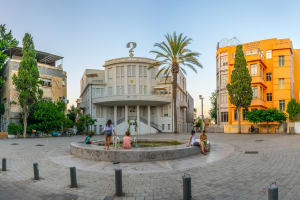Remembering Israel's 'Iron Lady' – Golda Meir – The country's first and only female prime minister

As Israel commemorates the birthday of Israel's fourth prime minister, Golda Meir, today is an opportune moment to reflect on her life and legacy as one of the most prominent female leaders in 20th-century global politics.
Golda Meir was a foundational figure in Israeli politics and was renowned for her formidable leadership and iron-willed diplomacy, particularly during one of Israel's most challenging times which began on Oct. 6, 1973, the start of the Yom Kippur War.
Born to a Jewish family as Golda Mabovitch in Kyiv, Ukraine, on May 3, 1898, the 8-year-old Meir moved to the United States with her family in 1906, where they made their home in Milwaukee, Wisconsin. With a penchant for leadership and activism from an early age, Meir was involved in various socialist movements and deeply influenced by Zionist ideology.
In 1921, Meir and her husband moved to Jerusalem, where she continued her political activism – primarily within the labor movement – and quickly rose through the ranks of Israel's Labour party, Histadrut, which was then called the "General Organization of Workers in Israel."
Meir held several important positions before the establishment of the State of Israel in 1948, including as the head of the Hisadrut's political department and as the Israeli envoy to the Soviet Union.
After Israel declared its independence in 1948, Meir was one of the 24 Israeli leaders – only two of whom were women – to sign Israel's Declaration of Independence. She later served as Israel's labor minister, the minister of national insurance, and then as foreign minister under her Hebrew name, Golda Meirson, which was eventually shortened to Golda Meir.

Meir's role as Israel's foreign minister was marked by her efforts to strengthen the Jewish nation's ties with newly independent states in Africa, as well as her role in covert operations, such as facilitating the immigration of Jews from Arab countries and the Iranian regime.
In 1969, following the death of then-Prime Minister Levi Eshkol, Meir became Israel's fourth and only female prime minister, a position she held for five years until she resigned in 1974, after one of the most turbulent periods in Israeli history.
Despite criticism of her government's lack of preparedness for the Yom Kippur War – a surprise attack by Egypt and Syria on Israel on October 6, 1973, the most solemn day of observance and repentance for Jews worldwide – Meir's leadership during the conflict was marked by resilience and efforts to secure strategic alliances for critical military resupply from the U.S. Her decisive actions during the war solidified her reputation as a leader of fortitude but also led to considerable controversy and eventual political fallou
Fast forward to present-day Israel, Prime Minister Benjamin Netanyahu faces a set of challenges amid the recurring escalations in Gaza. Like Meir, Netanyahu has favored a tough stance on defense issues and a desire to protect Israel's national interests. His leadership has seen significant military engagements and a focus on maintaining security, often resulting in widespread international scrutiny.
Both Meir and Netanyahu have shown a preference for strong military responses, combined with diplomatic efforts to bolster Israel's position internationally, however, the context and specifics of the situation are significantly different due to changes in geopolitical dynamics, advancements in military technology, and shifts in global political attitudes toward the Israeli-Palestinian conflict.
In today's society, with a tremendous amount of biased news sources worldwide, fake news, live streams and social media posts, the challenge of leading Israel during a tumultuous time has taken on a new significance.
Golda Meir resigned from her role as prime minister one year after the Yom Kippur War, in 1974, and died just four years later in 1978 from a cancer she battled for more than a decade.
Meir has remained an influential figure and a symbol of leadership and dedication in the face of adversity. Her leadership style, often described as direct and pragmatic, earned Meir the nickname "the Iron Lady" of Israeli politics, underscoring her tenacity and resilience.

In March 2022, just one month after Russia invaded Ukraine, ALL ISRAEL NEWS featured a Ynet article about a Ukrainian soldier named Alex, who called himself a Zionist and said Ukraine-born Golda Meir was a source of inspiration and a symbol of freedom for him amid the conflict. In 2018, the nation of Ukraine proudly declared Meir as "a true daughter of Kyiv" and a symbol of heroic fighting for freedom and nation-building.
The biographical film by Israeli filmmaker Guy Nativ, “Golda,” stars Oscar-winning actress Helen Mirren in the leading role. The movie premiered at the 40th Jerusalem Film Festival last July. Click here for a film review by ALL ISRAEL NEWS Editor-in-Chief Joel Rosenberg.
“Golda is one of the greatest roles to play," Mirren told Israeli President Isaac Herzog and First Lady Michal at the time. "I was a young woman when she was elected, and to see a woman leading a complex country like Israel was a seminal moment.”
“I believe in Israel…I believe Israel has to go forward into the future, and for the rest of eternity…" Mirren shared in an interview, just three months before Oct. 7, 2023, when Hamas terrorists stormed Israel's southern border with Gaza, brutally murdering 1,200 during the Jewish holiday celebration of Simchat Torah.
As Israel commemorates Golda Meir's birthday, her legacy continues to inspire leaders worldwide because of her diplomacy and the prominent role she played in politics as a woman in a predominantly male framework.
She is remembered by Israeli citizens for her unwavering commitment to the Jewish nation and her role in shaping its early political landscape.
Golda Meir's birthday falls just one day after that of Theodor Herzl, the visionary behind the idea of the State of Israel.

The All Israel News Staff is a team of journalists in Israel.
You might also like to read this:

















